Caryn’s Thoughts
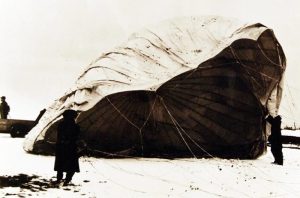 Thermopolis, Wyoming…a favorite destination for my husband and me. We take a trip there every year for our anniversary. I suppose that for many people, Thermopolis would seem too quiet, too small, and too little to do, but for us it is just perfect. With its hot springs and river walk trail, it is just perfect for us, and the hot spring ponds filled with goldfish of a size you simply cannot imagine until you see them. I’ve been told that they came from people getting rid of the small goldfish, and the warm water, along with the pond size, allowed the smaller goldfish to grow quite large. Thermopolis also had a dinosaur museum, although we have never been there. We go to the area for the hot tub and the trail for sure.
Thermopolis, Wyoming…a favorite destination for my husband and me. We take a trip there every year for our anniversary. I suppose that for many people, Thermopolis would seem too quiet, too small, and too little to do, but for us it is just perfect. With its hot springs and river walk trail, it is just perfect for us, and the hot spring ponds filled with goldfish of a size you simply cannot imagine until you see them. I’ve been told that they came from people getting rid of the small goldfish, and the warm water, along with the pond size, allowed the smaller goldfish to grow quite large. Thermopolis also had a dinosaur museum, although we have never been there. We go to the area for the hot tub and the trail for sure.
While Thermopolis might seem like the safest little out of the way place, there was a time when it was actually a target for an attack. During World War II, the Japanese set their sights on Wyoming. It makes little sense to me, but it was the target they chose. During World War II, the Japanese were experimenting with a new kind of bomb. It really wasn’t the greatest idea, but they did send some of them out. The problem with balloons is that it’s difficult to control where it is going…especially when it is unmanned. It’s hard to say what the exact target was, but on December 5, 1944, coal miners outside of Thermopolis heard something from the skies above and saw an explosion streak across the dark sky. When the object landed, it was discovered to be a Japanese Fu-Go Balloon Bomb. Though the Japanese launched 9,300 of these bombs, only about 300 made it to land, and the Thermopolis bomb was the first one to reach the United States. 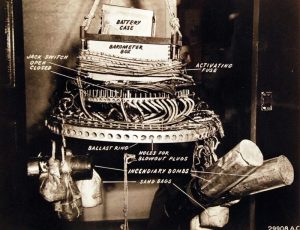
I find it hard to believe that the first Fu-Go Balloon Bomb made it all the way to Wyoming before exploding, when the only Fu-Go Balloon Bomb to actually kill anyone was one that landed near Bly, Oregon on May 5, 1945, that killed a pregnant woman and five children after they approached the unexploded balloon that had landed nearby. The balloon exploded as they investigated it. After that, the public was warned to stay away from the objects, but the news stories were still scarce. In fact, the Japanese only ever learned of the landing in Wyoming!! I have no idea how the media held themselves back.
Landing so many balloons in America was an impressive feat because the inter-continental attack was considered impossible at the time. Whatever the Japanese had hoped to gain by this relatively ineffective “bomb” is unknown, but it was a real failure. My guess is that most of them exploded over the ocean, doing no damage. Nevertheless, these massive balloons were a bit of a marvel…so to speak. They had to carry more than 1,000 pounds across the ocean, which was no easy task, especially for technology at the time. The fact that any of them made it here was impressive, I suppose. They were impressive balloons from a technologic standpoint. They were controlled by altimeters that kept the balloon in the newly discovered jet stream until it was over America, where it would fall to the ground and detonate…or so was the plan. The goal of the mission was to cause panic and fear in the United States, but a media blackout meant that these landings and 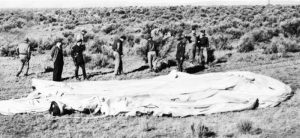 explosions went unreported. A blackout was the only way.
explosions went unreported. A blackout was the only way.
These attacks were actually quite amazing, because they were the longest ranged assaults in the history of warfare. It wasn’t until 1982 (during the Falkland Islands War) that the distance was topped. Today, the story of the Fu-Go Balloon Bombing is rarely told in Wyoming outside of Thermopolis, where it has supposedly become local folklore. Strange that I have never heard of it, even with the many years we have been spending our anniversary there. I will most definitely have to ask about it the next time we go.
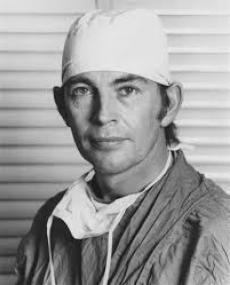 For a heart surgeon, there comes a point with a heart, when the diseased part is bad enough that it can’t be fixed. No matter how hard he tries, it is going to take a miracle to save the owner of that heart. That was the place that Dr Christiaan Neethling Barnard was facing in November 1967. His patient, 54-year-old Louis Washkansky was…well, dying, with little hope of survival. Heart transplants weren’t done every day like they are these days, and Barnard had told Mr and Mrs Washkansky that the operation had an 80% chance of success, an assessment which has been criticized as misleading, but by the same token, Mr Washkansky had no chance of survival without the transplant. Then, the opportunity presented itself, in the form of accident victim, Denise Darvall.
For a heart surgeon, there comes a point with a heart, when the diseased part is bad enough that it can’t be fixed. No matter how hard he tries, it is going to take a miracle to save the owner of that heart. That was the place that Dr Christiaan Neethling Barnard was facing in November 1967. His patient, 54-year-old Louis Washkansky was…well, dying, with little hope of survival. Heart transplants weren’t done every day like they are these days, and Barnard had told Mr and Mrs Washkansky that the operation had an 80% chance of success, an assessment which has been criticized as misleading, but by the same token, Mr Washkansky had no chance of survival without the transplant. Then, the opportunity presented itself, in the form of accident victim, Denise Darvall.
The time had come, and on December 3, 1967, Darvall’s heart was transplanted by Dr Bernard into Washkansky. As with any new procedure, there were the inevitable risks, and while Washkansky regained full consciousness and was able to talk easily with his wife, he developed pneumonia eighteen days later and because of his compromised immune system, due largely to the anti-rejection drugs, he died eighteen days later of pneumonia, largely brought on by the anti-rejection drugs that suppressed his immune system. Dr Bernard could have given up, but he did not. His second heart transplant patient, Philip Blaiberg received his new heart in 1968, and while his life after that was not long, he did live another year and a half. Of course, these days, the heart transplant patient has a much better prognosis because of how much medical procedures have improved.
Born in Beaufort West, Cape Province, South Africa, on November 8, 1922, Bernard studied medicine and practiced for several years in his native South Africa. As a young doctor, he experimented on dogs, which I suppose might make some people angry. Nevertheless, Barnard developed a remedy for the infant defect of intestinal atresia. Intestinal atresia refers to a part of the fetal bowel that is not developed, and the intestinal tract becomes partially or completely blocked (bowel obstruction). His technique saved the lives of ten babies in Cape Town and was adopted by surgeons in Britain and the United States.
In 1955, Bernard decided to travel to the United States to further his studies. He was initially assigned further 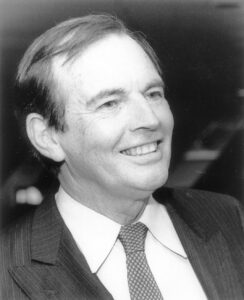 gastrointestinal work by Owen Harding Wangensteen at the University of Minnesota. Then, Bernard was introduced to the heart-lung machine, and was allowed to transfer to the service run by open heart surgery pioneer Walt Lillehei. After his study abroad, he returned to South Africa in 1958. Barnard was appointed head of the Department of Experimental Surgery at the Groote Schuur Hospital in Cape Town. After a long and successful career, Bernard retired as head of the Department of Cardiothoracic Surgery in Cape Town in 1983 after rheumatoid arthritis in his hands ended his surgical career. Still, he could not leave surgery completely alone. He became interested in anti-aging research, and in 1986 his reputation suffered when he promoted Glycel, an expensive “anti-aging” skin cream, whose approval was withdrawn by the United States Food and Drug Administration soon thereafter. During his remaining years, he established the Christiaan Barnard Foundation, which was dedicated to helping underprivileged children throughout the world. He died on September 2, 2001 at the age of 78 in Paphos, Cyprus after an asthma attack.
gastrointestinal work by Owen Harding Wangensteen at the University of Minnesota. Then, Bernard was introduced to the heart-lung machine, and was allowed to transfer to the service run by open heart surgery pioneer Walt Lillehei. After his study abroad, he returned to South Africa in 1958. Barnard was appointed head of the Department of Experimental Surgery at the Groote Schuur Hospital in Cape Town. After a long and successful career, Bernard retired as head of the Department of Cardiothoracic Surgery in Cape Town in 1983 after rheumatoid arthritis in his hands ended his surgical career. Still, he could not leave surgery completely alone. He became interested in anti-aging research, and in 1986 his reputation suffered when he promoted Glycel, an expensive “anti-aging” skin cream, whose approval was withdrawn by the United States Food and Drug Administration soon thereafter. During his remaining years, he established the Christiaan Barnard Foundation, which was dedicated to helping underprivileged children throughout the world. He died on September 2, 2001 at the age of 78 in Paphos, Cyprus after an asthma attack.

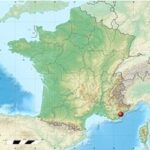 A strange thought, indeed, but Posthumous Marriage is not illegal in France…at least not since the Malpasset Dam disaster of December 2, 1959. While most of us would consider Posthumous Marriage to be a rather morbid idea, there are a couple of reasons that are considered legitimate reasons for the request for such a marriage to be granted. One such reason is, of course, a matter of deep emotional feelings for the lost fiancé. Another reason is to legitimize any children the couple already had, prior to the marriage…which I guess I can see, to a degree. There are rules that must be followed in order to have such a marriage approved…no matter what the reasons. The living partner must ask the deceased partner’s family for permission, and the invitations to the wedding must have already been sent out (showing intent from both members of the couple). The family can choose to allow, or not to allow the marriage, and if they do not agree, it is over. If family approval is given, the living partner must go before a judge to get legal permission to “marry” the deceased partner…who is usually represented at the service with a photograph. And…there are things that do not come with the marriage, such as any of the deceased partner’s property or money. In all reality, it is simply a symbolic event declaring their love for their partner. Nothing more!!
A strange thought, indeed, but Posthumous Marriage is not illegal in France…at least not since the Malpasset Dam disaster of December 2, 1959. While most of us would consider Posthumous Marriage to be a rather morbid idea, there are a couple of reasons that are considered legitimate reasons for the request for such a marriage to be granted. One such reason is, of course, a matter of deep emotional feelings for the lost fiancé. Another reason is to legitimize any children the couple already had, prior to the marriage…which I guess I can see, to a degree. There are rules that must be followed in order to have such a marriage approved…no matter what the reasons. The living partner must ask the deceased partner’s family for permission, and the invitations to the wedding must have already been sent out (showing intent from both members of the couple). The family can choose to allow, or not to allow the marriage, and if they do not agree, it is over. If family approval is given, the living partner must go before a judge to get legal permission to “marry” the deceased partner…who is usually represented at the service with a photograph. And…there are things that do not come with the marriage, such as any of the deceased partner’s property or money. In all reality, it is simply a symbolic event declaring their love for their partner. Nothing more!!
So how did such a strange idea get started in the first place. On December 2, 1959, the Malpasset Dam, an arch dam on the Reyran River, which is located approximately 4 miles north of Fréjus on the French Riviera (Côte d’Azur), Southern France, in the Var department collapsed, killing 423 people in the resulting flood. Signs of an imminent collapse began in November 1959, when a “trickle of clear water observed high on the right [side]” and then cracks noticed later in the month in the concrete apron at the dam toe. The dam was breached at 9:13pm on December 2, 1959. The break was partially due to rainfall and thus the rising level of water. By noon that day, the reservoir had reached its maximum level, and the guardian André Ferro asked for permission to release the excess water, but was denied the ability to do so until 6:00pm of that day. By then, the amount of water was so high that it took three hours to release only a few centimeters of water. The entire wall then collapsed leaving only a few blocks on the right bank. Pieces of the dam are still scattered throughout the area to this day. The damage amounted to an equivalent total of 68 million US dollars.
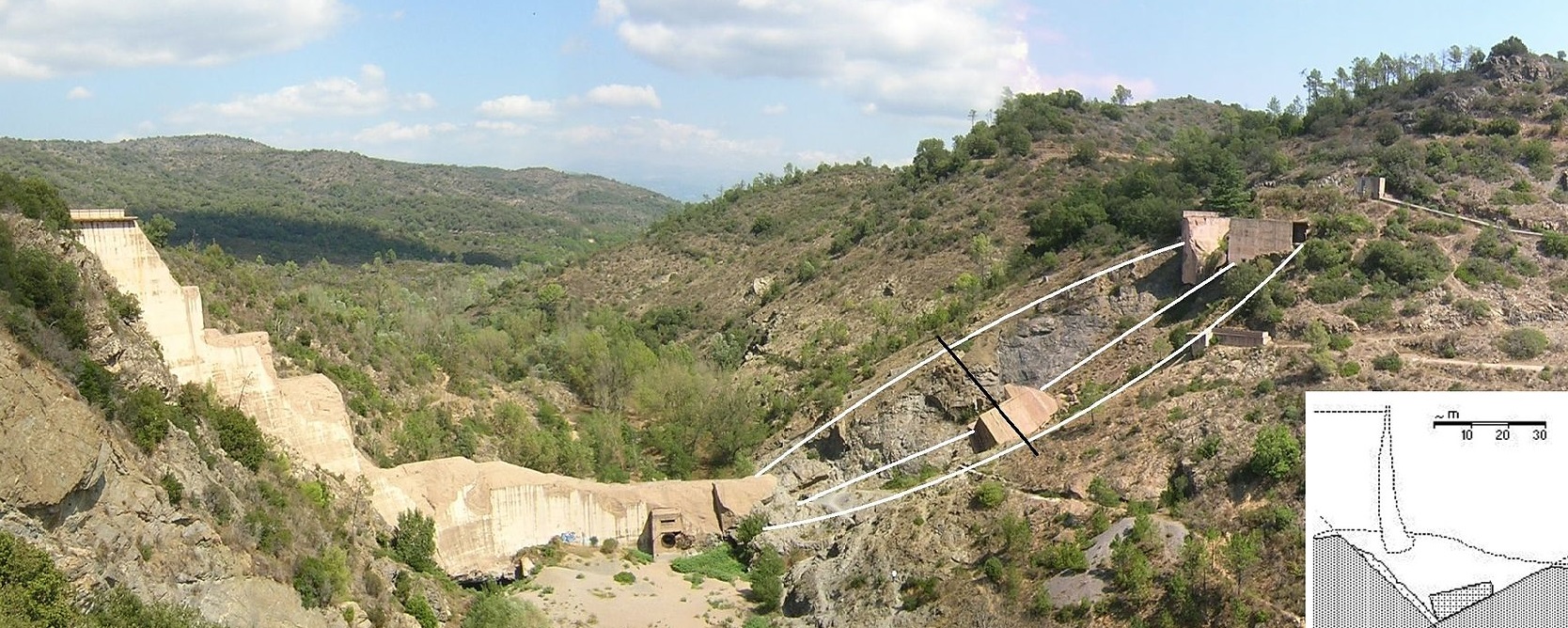
Apparently, there were so many women who lost their fiancés, that the event also ushered in the practice of posthumous marriage in France. It’s hard for me to imagine that out of 423 people, there were enough fiancés to warrant the need for a new law. I could assume that at least some of those couples were…dating yes, but not planning their weddings. Remember, that the invitations had to have been sent out, so there were a lot of couples in varying stages of wedding planning. Still, posthumous marriage is a very strange idea.
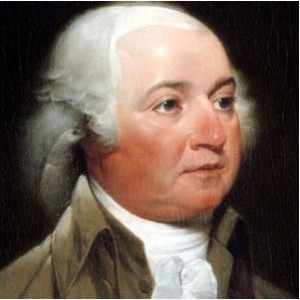 His Elective Majesty…sounds almost laughable, but it was almost the proper way to address the President of the United States, a fact that some presidents would probably have liked very much. Some presidents have tried to “rule” as a king would have, so they figure, why not buy in whole heartedly. One such president, who in fact made the original suggestion of title, was none other than, at the time, Vice President John Adams. The idea came from the fact that other heads of state are known by honorifics such as “His Excellency” and such, but United States presidents are only ever Mr President…or “sir” in a pinch. I’m sure that John Adams already had his sights set on becoming president at some point, and the second president of the United States seemed as good a time to run as any…or maybe he liked his own idea very much.
His Elective Majesty…sounds almost laughable, but it was almost the proper way to address the President of the United States, a fact that some presidents would probably have liked very much. Some presidents have tried to “rule” as a king would have, so they figure, why not buy in whole heartedly. One such president, who in fact made the original suggestion of title, was none other than, at the time, Vice President John Adams. The idea came from the fact that other heads of state are known by honorifics such as “His Excellency” and such, but United States presidents are only ever Mr President…or “sir” in a pinch. I’m sure that John Adams already had his sights set on becoming president at some point, and the second president of the United States seemed as good a time to run as any…or maybe he liked his own idea very much.
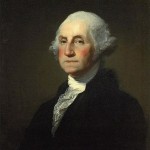
Apparently, thinking that the office of the President of the United States needed a title with more grandeur, Adams suggested that a president should be referred to as either “His Elective Majesty,” “His Mightiness,” or the slightly excessive “His Highness, the President of the United States of America and the Protector of their Liberties.” Just imagine any of those ideas. Every one of them make me giggle. Just take a moment to say (out loud) those titles in connection with the president…any president. With some presidents, any one of these titles is hilarious, and I’ll let you to decide to whom that statement applies, because these days we all have very specific opinions on the matter.
In those days, Washington was very aware of public fear about their newly won democracy slipping back into a 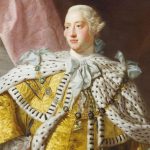 monarchy. They didn’t want this new nation to be too similar to England. They didn’t want this newly free nation to become once again ruled by a different kind of monarchy. So, they refused to allow the president to be titled as anything other than “The President of the United States.” They were right, of course, because the United States is not a “spin-off” of England…like England 2.0. The United States is a very unique nation…unlike any other, before her or after her. This nation was founded by people who refused to be told what to believe anymore. That is why they left England, where they were forced to live under a “state religion.” The nation was founded as “one nation, under God.” We would not have a king, because Jesus was our King of kings. We couldn’t give that title to a mere man.
monarchy. They didn’t want this new nation to be too similar to England. They didn’t want this newly free nation to become once again ruled by a different kind of monarchy. So, they refused to allow the president to be titled as anything other than “The President of the United States.” They were right, of course, because the United States is not a “spin-off” of England…like England 2.0. The United States is a very unique nation…unlike any other, before her or after her. This nation was founded by people who refused to be told what to believe anymore. That is why they left England, where they were forced to live under a “state religion.” The nation was founded as “one nation, under God.” We would not have a king, because Jesus was our King of kings. We couldn’t give that title to a mere man.
 The Alaskan Wood Frog is a unique amphibian, and not one I would probably be interested in, but this one is special. It’s not just that they live in Alaska, where it gets quite cold part of the year, and it’s not their strange looks…long skinny legs, orange eyes, or orange toes. Strange looking as that is, in the wild it is not that unusual. The unusual thing about these frogs is that they have a high tolerance to subzero temperatures. In fact, that cold tolerance is so strong that when winter sets in, the Alaskan Tree Frog begins to freeze. It doesn’t burrow underground, or migrate to the south, or any other evasive action, it just freezes in place, and in the position that it is in, as it freezes.
The Alaskan Wood Frog is a unique amphibian, and not one I would probably be interested in, but this one is special. It’s not just that they live in Alaska, where it gets quite cold part of the year, and it’s not their strange looks…long skinny legs, orange eyes, or orange toes. Strange looking as that is, in the wild it is not that unusual. The unusual thing about these frogs is that they have a high tolerance to subzero temperatures. In fact, that cold tolerance is so strong that when winter sets in, the Alaskan Tree Frog begins to freeze. It doesn’t burrow underground, or migrate to the south, or any other evasive action, it just freezes in place, and in the position that it is in, as it freezes.
As the Alaskan Wood Frog freezes, little ice crystals form all over its body, and it begins to look like a frog snowman…or iceman. The frog’s heart stops and blood no longer flows. All of its organs are frozen. I suppose I have basically just described the death of the Alaskan Wood Frog, but I have not. This tiny amphibian can survive being almost completely frozen during winter, only to miraculously come back to life as soon as spring arrives!
It is a type of hibernation, I suppose. It isn’t the kind of warm, cozy, sleep-off-the-fat type of hibernation that bears go through. For days, even weeks at a time during its period of winter hibernation, over 60 percent of the frog’s body freezes. The frog stops breathing and its heart stops beating. All of its physical processes, such as  metabolic activity and waste production come to a halt. “For all intents and purposes, they are dead,” said Don Larson, a Ph.D. student at Fairbanks, Alaska. As per his research, wood frogs can survive long winters where temperatures ranging between -48 Celsius to -64 Celsius. In fact, it can go through 10 to 15 freeze/thaw cycles over the course of a single season.
metabolic activity and waste production come to a halt. “For all intents and purposes, they are dead,” said Don Larson, a Ph.D. student at Fairbanks, Alaska. As per his research, wood frogs can survive long winters where temperatures ranging between -48 Celsius to -64 Celsius. In fact, it can go through 10 to 15 freeze/thaw cycles over the course of a single season.
As researchers have studied the amazing Alaskan Wood Frog, they have discovered the reason that the frog can survive such an extreme hibernation cycle. They have discovered that the reason for this the miraculous phenomenon is the high concentration of cryoprotectants in the wood frog’s tissues. What are cryoprotectants, you might ask. I wondered too. Cryoprotectants are “solutes – including glucose and urea.” They lower the freezing temperature of the frog’s cells, helping them survive. Exposure to subzero temperatures for a long time could cause cellular shrinkage in most animals. During the freezing process, water is pulled from the body’s cells to form ice, eventually sucking them dry and killing the cell. Cryoprotectants help the cells resist shrinkage in the wood frog, basically saving their lives. “The solutes tend to depress the freezing point. It limits the amount of ice that actually forms in the body at any part,” said Jon Costanzo of the Department of Zoology at Miami University in Ohio, who has been researching wood frogs for the past 25 years.
The research done into the Alaskan Wood Frog has helped medical researchers to discover ways that living  organs and tissues can be frozen and unfrozen without damaging them. That could be an amazing step forward in the area of organ transplants. Costanzo explained, “There’s an obvious parallel between what these frogs are doing to preserve all of their tissues simultaneously and our need to be able to cryopreserve human organs for tissue-matching purposes. If you could freeze human organs even for a short period of time, that would be a major breakthrough because then these organs could be shipped around the world, which would greatly [improve] the donor-matching process.” It amazing that the seemingly insignificant study of a frozen Alaskan Wood Frog could have such a great impact on the medical world of humans.
organs and tissues can be frozen and unfrozen without damaging them. That could be an amazing step forward in the area of organ transplants. Costanzo explained, “There’s an obvious parallel between what these frogs are doing to preserve all of their tissues simultaneously and our need to be able to cryopreserve human organs for tissue-matching purposes. If you could freeze human organs even for a short period of time, that would be a major breakthrough because then these organs could be shipped around the world, which would greatly [improve] the donor-matching process.” It amazing that the seemingly insignificant study of a frozen Alaskan Wood Frog could have such a great impact on the medical world of humans.
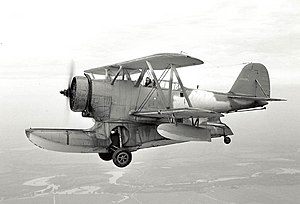 “Leave No Man Behind” is a creed often repeated and strictly followed by various units and soldiers. The interpretation of the phrase is applied to the treatment and extraction of the seriously wounded, the recovery of the body of military members killed in action, and the attempts to rescue or trade for prisoners of war. Technically, it didn’t really apply concerning the North Atlantic Ferry Route, also known as the Snowball Route. The route was a transport route used during World War II. It went from Goose Bay, Labrador to the one-way runway at Bluie West One on Greenland. Then, the route continued across to Keflavik, Iceland, for a refueling stop. From there it continued to Prestwick, Scotland and finally to England. The route was the United Kingdom’s World War II aerial lifeline, and was used by freighters, as well as European Theater of Operations-bound bombers and fighters…which means that my dad, Staff Sergeant Allen Lewis Spencer might have traveled this route on his way to Great Ashfield Army Airforce Base, Suffolk, England, where he was stationed during World War II.
“Leave No Man Behind” is a creed often repeated and strictly followed by various units and soldiers. The interpretation of the phrase is applied to the treatment and extraction of the seriously wounded, the recovery of the body of military members killed in action, and the attempts to rescue or trade for prisoners of war. Technically, it didn’t really apply concerning the North Atlantic Ferry Route, also known as the Snowball Route. The route was a transport route used during World War II. It went from Goose Bay, Labrador to the one-way runway at Bluie West One on Greenland. Then, the route continued across to Keflavik, Iceland, for a refueling stop. From there it continued to Prestwick, Scotland and finally to England. The route was the United Kingdom’s World War II aerial lifeline, and was used by freighters, as well as European Theater of Operations-bound bombers and fighters…which means that my dad, Staff Sergeant Allen Lewis Spencer might have traveled this route on his way to Great Ashfield Army Airforce Base, Suffolk, England, where he was stationed during World War II.
I don’t imagine that landings at Bluie West One on Greenland would be easy on the best of days, and if the weather was bad, it was going to be far worse, and if there was any airplane trouble, it was really going to get dicey. On November 5, 1942, a Douglas C-53 Skytrooper, a paratroop-outfitted version of the C-47, was heading westbound on the Snowball Route. The plane was empty except for its crew of two and three military passengers returning to the United States from Scotland. The Skytrooper never made it. The crew radioed that they had to make a forced landing on the Greenland ice cap and giving an approximate position. The airplane was intact, and apparently there were no injuries.
Now began the hardest part of the situation…rescue. The C-53 fired flares for the next two nights. The flares were seen at a weather station on the Greenland coast, and rescuers set out toward them on motorized sleds. The group expected to be back in three or four days, if the weather held, but their sleds broke down, and they never found the C-53. After that, the flares stopped, and the plane and crew would never be seen or heard of again. Meanwhile, a variety of eastbound B-17s, B-25s, and C-47s that were either already over Greenland or gassing up at Narsarsuaq, the famous Bluie West One base, were detoured for search duty. One of them was a B-17F originally bound for England. On November 9 it took off from Bluie West One, assigned to search the area where the C-53’s flares had last been seen. Aboard the Flying Fortress were its original six-man transport crew, an Army enlisted man they had picked up at Goose Bay and two volunteer observers who had jumped aboard at Bluie West One to help out…an offer they would no doubt regret. 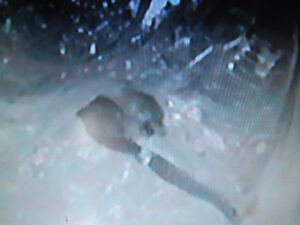
Just as the B-17 reached its search area, it ran into bad weather. Following pilot, Lieutenant Armand Monteverde’s 180 around the weather, he headed back into the search grid, only to fly into a sudden whiteout. Suddenly, the sky, clouds, and ice all looked the same. It was as if the horizon disappeared. Monteverde had no choice but did the only thing he could and banked away to fly back to clearer air. But the B-17’s left wingtip caught the ground, and the airplane skidded onto the ice cap. It was a hard crash, with the bomber traveling only about 200 yards before splitting apart just behind the wings. The Fortress had come down atop an active glacier, spider-webbed with crevasses. It was like landing in the middle of a minefield. The entire broken-off tail section hung over a large open chasm, with another chasm yawning just in front of the bomber. One crewman suffered a broken arm, and others had bad cuts and bruises. Just four were unhurt.
Meanwhile, an RAF Douglas Havoc out of Gander, being ferried through a snowstorm by a Canadian crew, flew past its refueling stop at Narsarsuaq and put down on the ice before its tanks ran totally dry. The Canadians set out on foot for the coast. On November 18, a search plane out of BW-1 spotted the Havoc, but its crew was gone. Five days later, a Grumman J2F-4 Duck from the Coast Guard cutter Northland, landed on the southeast coast of Greenland. They found the crew’s trail, and followed their snowshoe tracks. The men had actually fabricated snowshoes from pieces stripped from the Havoc. That night, Northland fired off flares, and the Havoc crew spotted them. The in an act much like burning his bridges, one of the pilots responded by setting fire to his coat, which in Greenland in late November is a good way to freeze to death. Fortunately, the blazing parka was spotted by crewman aboard Northland, which put a rescue party ashore and found the Havoc crew.
On the morning of November 28, the cutter Northland dispatched their Grumman J2F-4, a plane known as the Duck into the hunt as well. On board were Coast Guard pilot Lieutenant John Pritchard Jr and his radioman, Petty Officer 1st Class Benjamin Bottoms. They took off for the B-17 crash site. Pritchard overflew the B-17 and radioed its crew for landing advice. “Don’t try it,” Corporal Howarth replied, “crevasses everywhere.” Colonel Balchen, coincidentally, was overhead at that moment in the DC-4, making a supply drop. Nevertheless, Pritchard found a smooth, sloped, apparently crevasse-free area a mile north of the B-17 and carefully touched down with his landing gear extended. He landed uphill, and the Duck quickly came to a stop. It was the very first successful landing of an airplane on the surface of Greenland’s ice cap. The Duck made two trips to rescue 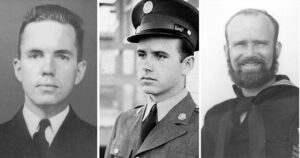 the men in the B-17, the first successful; and the second with passenger, radioman Loren Howarth, ended in a crash that would leave the plane lost for seven decades.
the men in the B-17, the first successful; and the second with passenger, radioman Loren Howarth, ended in a crash that would leave the plane lost for seven decades.
Fast forward…to 2012, when a company by the name Global Exploration and Recovery found the remains of the Duck in 38 feet of ice, with its crew and passenger still onboard. GEaR believes in “Leave No Man Behind,” and does its best to find these downed war birds to bring them and their crew…finally home, if they are still in the planes. What a noble effort.

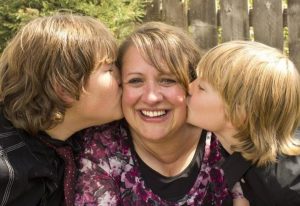 My niece, Machelle Moore has been looking at a different kind of future these days. As a mom, I know that the years of her children’s childhood have flown past with unbelievable speed. Her eldest son, Weston moved to Butte, Montana from their home in Powell, Wyoming this past year, and while that isn’t a cross country move, it does leave Machelle’s home with three people instead of four. Now, her youngest son, Easton is going to be graduating from high school, and the inevitable time when he will also leave home is just around the corner. Easton hasn’t specifically made plans to move out or away, but Weston hadn’t either…until he did. Most parents will face the empty nest moment at some point in their life, and it is not an easy one.
My niece, Machelle Moore has been looking at a different kind of future these days. As a mom, I know that the years of her children’s childhood have flown past with unbelievable speed. Her eldest son, Weston moved to Butte, Montana from their home in Powell, Wyoming this past year, and while that isn’t a cross country move, it does leave Machelle’s home with three people instead of four. Now, her youngest son, Easton is going to be graduating from high school, and the inevitable time when he will also leave home is just around the corner. Easton hasn’t specifically made plans to move out or away, but Weston hadn’t either…until he did. Most parents will face the empty nest moment at some point in their life, and it is not an easy one.
Machelle and her husband, Steve have been happily married since August 14, 1999, but when their boys are both out of the house, that inevitable feeling of a “too quiet house” will creep in. They will have to learn to find new hobbies, new activities, and new ways to spend their evenings. The good news is that Machelle and Steve have a great marriage. They love to do lots of things together, like camping, hiking and exploring, and their favorite…rock hunting. I know that like every “empty nester” among us has found, life does go on and it’s even good, whether our children live at home or not. And eventually, the grandchildren start to come, and the home is filled with new life. You never know whan that will start, however, so Machelle and Steve will have lots of good times in the meantime.
For now, Machell and Steve are busy with all the senior year activities that Easton has going on, like prom and Easton’s dating and working life. There are lots of exciting things happening during a kid’s senior year, like senior pictures, and soon graduation planning and rehearsals. The only problem with all that activity is that it 
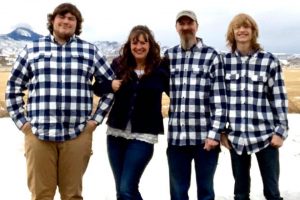 only serves to make the year go by faster…rather defeating the whole idea of “putting the brakes” on the year. Well, as we all know, it just doesn’t work that way. Nevertheless, Machelle and Steve will survive the empty nest, whenever it arrives, just like the rest of the parents in the world have done. For now, I pray the time slows down just a bit before that fateful day arrives. Today is Machelle’s birthday. Happy birthday Machelle!! Have a great day!! We love you!!
only serves to make the year go by faster…rather defeating the whole idea of “putting the brakes” on the year. Well, as we all know, it just doesn’t work that way. Nevertheless, Machelle and Steve will survive the empty nest, whenever it arrives, just like the rest of the parents in the world have done. For now, I pray the time slows down just a bit before that fateful day arrives. Today is Machelle’s birthday. Happy birthday Machelle!! Have a great day!! We love you!!
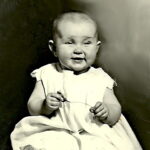
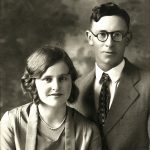 For a while now, in my Bible study, I have been studying about Jesus as the good shepherd. While that may not really remind most people in our family of my husband’s grandpa, Robert Knox, it does remind me of him. Jesus’ stories about how a good shepherd would do what it takes to keep his flock of sheep safe, are really true of any “good” shepherd. The whole job of a shepherd is to fight off the coyote, mountain lion, bear, or any other predator that might harm or even kill the sheep. In Biblical times, and maybe even to this day, the shepherd is often the only one with the sheep, because as we all know, sheep are a fairly docile animal. Predators…however, are definitely not docile. They are ravenously hungry, and you, the shepherd, are the only thing that lies between them and their next meal. That puts you, the shepherd…in the way.
For a while now, in my Bible study, I have been studying about Jesus as the good shepherd. While that may not really remind most people in our family of my husband’s grandpa, Robert Knox, it does remind me of him. Jesus’ stories about how a good shepherd would do what it takes to keep his flock of sheep safe, are really true of any “good” shepherd. The whole job of a shepherd is to fight off the coyote, mountain lion, bear, or any other predator that might harm or even kill the sheep. In Biblical times, and maybe even to this day, the shepherd is often the only one with the sheep, because as we all know, sheep are a fairly docile animal. Predators…however, are definitely not docile. They are ravenously hungry, and you, the shepherd, are the only thing that lies between them and their next meal. That puts you, the shepherd…in the way.
At this point, you might be wondering how that applies to Grandpa Knox, but it does. Grandpa was a shepherd for a time in his working days, and he had an even bigger reason to keep predators away from his flock. While many shepherds were along with their flock, Grandpa was not. He had his wife, Nettie and their three-year-old daughter, Joann Knox (Schulenberg) with him, and it was his most important job to keep them safe. I can’t say that he ever wrestled a coyote, mountain lion, or bear, but it’s possible that he had to kill a few with a gun.
Grandpa Knox did not really seem the type to be a mighty hunter or killer of predators, but I suppose he would 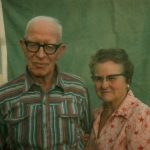
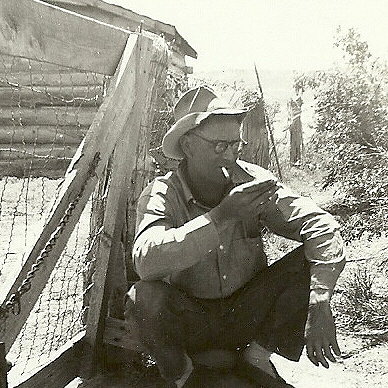 have had to become that in the event of a situation. The Grandpa Knox I met when I joined this family was more the gardener type. Grandpa spent much of his summer hours tending the garden on my in-laws place that provided our family with lots of great vegetables. I thought that the biggest predator Grandpa handled was a stray cow or maybe a hungry bunny rabbit. I suppose he did handle those too, but once upon a time, he protected the sheep in his flock, just like the stories Jesus told us about the shepherd and the predator. Today is the 113th anniversary of Grandpa Knox’s birth. Happy birthday in Heaven, Grandpa Knox!! We love and miss you very much!!
have had to become that in the event of a situation. The Grandpa Knox I met when I joined this family was more the gardener type. Grandpa spent much of his summer hours tending the garden on my in-laws place that provided our family with lots of great vegetables. I thought that the biggest predator Grandpa handled was a stray cow or maybe a hungry bunny rabbit. I suppose he did handle those too, but once upon a time, he protected the sheep in his flock, just like the stories Jesus told us about the shepherd and the predator. Today is the 113th anniversary of Grandpa Knox’s birth. Happy birthday in Heaven, Grandpa Knox!! We love and miss you very much!!
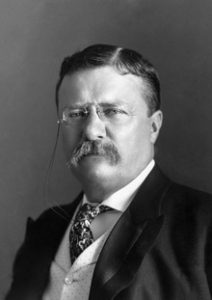
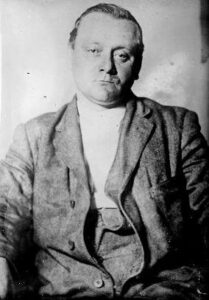 I have always known that I was stubborn, and “bull headed” and if you ask my sisters, they will very much agree with me on that fact, but I seriously doubt if they would ever call me stubborn if I were compared to President Theodore Roosevelt. I don’t think many people are as stubborn as Roosevelt was. Roosevelt didn’t run for his initial term in office, but rather became president of the United States because William McKinley was assassinated while Roosevelt was serving as vice president. He did run for and win a second term in the election of 1904, during which he promised not to run for a third term thereafter. A man of his word to a point, Roosevelt stuck to that promise through the 1908 election, but then he decided to run for President again in 1912, first losing the Republican primary to the incumbent William Taft and then running at the head of a brand-new party, the Progressive “Bull Moose” Party. It is a strange name for a political party, but I think it might have been appropriate for Roosevelt.
I have always known that I was stubborn, and “bull headed” and if you ask my sisters, they will very much agree with me on that fact, but I seriously doubt if they would ever call me stubborn if I were compared to President Theodore Roosevelt. I don’t think many people are as stubborn as Roosevelt was. Roosevelt didn’t run for his initial term in office, but rather became president of the United States because William McKinley was assassinated while Roosevelt was serving as vice president. He did run for and win a second term in the election of 1904, during which he promised not to run for a third term thereafter. A man of his word to a point, Roosevelt stuck to that promise through the 1908 election, but then he decided to run for President again in 1912, first losing the Republican primary to the incumbent William Taft and then running at the head of a brand-new party, the Progressive “Bull Moose” Party. It is a strange name for a political party, but I think it might have been appropriate for Roosevelt.
When Roosevelt decided to run for president again in 1912, a saloon owner named John Schrank became obsessed with him, and after having a nightmare that convinced Schrank that Roosevelt was responsible for McKinley’s assassination. That fueled his obsession, and on October 14, 1912, he walked up to Roosevelt as he exited a Milwaukee hotel on route to a campaign event and fired a .38-caliber revolver right into his chest. For most people, this would be the end of the story, but this is where Roosevelt really earned the name attached to the political party of which he was a member.
Unfortunately, Schrank was not a bad shot, and the bullet hit its mark. Fortunately, the path of the bullet was not an easy one. After passing through Roosevelt’s glasses case and 50 pages worth of notes in his breast pocket, which slowed it down considerably the bullet hit Roosevelt’s chest. The items in its way likely slowed the bullet enough to save Roosevelt’s life. Then, in typical “bull headed” fashion, the former president coughed into his hands to check for blood, and upon finding none, continued on to the Milwaukee Auditorium, where he delivered an 84-minute speech that began with the following lines, “Friends, I shall ask you to be as quiet as possible. I don’t know whether you fully understand that I have just been shot; but it takes more than that to kill a Bull Moose. But fortunately, I had my manuscript, so you see I was going to make a long speech, and there is a bullet – there is where the bullet went through – and it probably saved me from it going into my heart. The bullet is in me now, so that I cannot make a very long speech, but I will try my best.”
The bullet stayed lodged in his ribs throughout the rest of his unsuccessful campaign, and until his passing in 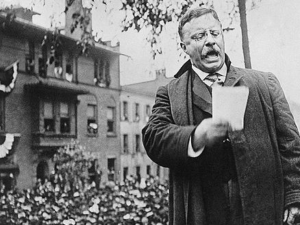
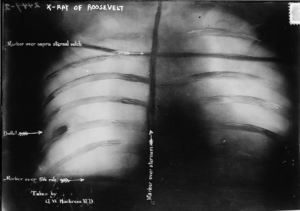 1919. While Roosevelt lost his race, his determination did show the kind of fortitude it takes to be president of this country. Being the leader of the free world, is not something that can be handled easily. The President of the United States must be an anointed position, and it is not one that just anyone can handle. In many ways, the best presidents are a type of “bull moose.” They have to be to take the pounding they have to take, and then keep coming back for more.
1919. While Roosevelt lost his race, his determination did show the kind of fortitude it takes to be president of this country. Being the leader of the free world, is not something that can be handled easily. The President of the United States must be an anointed position, and it is not one that just anyone can handle. In many ways, the best presidents are a type of “bull moose.” They have to be to take the pounding they have to take, and then keep coming back for more.
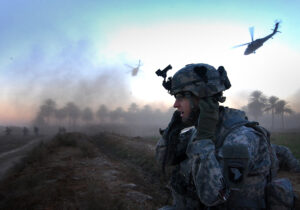 When the United States Army sends in the Army Special Forces, they are sending their very best people. It’s not that all of our soldiers aren’t the best in the world, because they are, but the Special Forces, also known as the “Green Berets” due to their distinctive service headgear, are a special operations force of the United States Army that are “designed to deploy and execute nine doctrinal missions: unconventional warfare, foreign internal defense, direct action, counter-insurgency, special reconnaissance, counter-terrorism, information operations, counterproliferation of weapons of mass destruction, and security force assistance. The first two missions, unconventional warfare and foreign internal defenses, emphasize language, cultural, and training skills in working with foreign troops. Other Special Forces missions, known as secondary missions, include: combat search and rescue (CSAR), counter-narcotics, hostage rescue, humanitarian assistance, humanitarian demining, information operations, peacekeeping, and manhunts.” Normally, the Special Forces teams are the ones sent in to rescue the other
When the United States Army sends in the Army Special Forces, they are sending their very best people. It’s not that all of our soldiers aren’t the best in the world, because they are, but the Special Forces, also known as the “Green Berets” due to their distinctive service headgear, are a special operations force of the United States Army that are “designed to deploy and execute nine doctrinal missions: unconventional warfare, foreign internal defense, direct action, counter-insurgency, special reconnaissance, counter-terrorism, information operations, counterproliferation of weapons of mass destruction, and security force assistance. The first two missions, unconventional warfare and foreign internal defenses, emphasize language, cultural, and training skills in working with foreign troops. Other Special Forces missions, known as secondary missions, include: combat search and rescue (CSAR), counter-narcotics, hostage rescue, humanitarian assistance, humanitarian demining, information operations, peacekeeping, and manhunts.” Normally, the Special Forces teams are the ones sent in to rescue the other 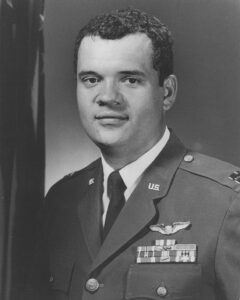 soldiers, or at least to drag them out of a sticky situation, but on this occasion, it was the Special Forces team that needed to be rescued.
soldiers, or at least to drag them out of a sticky situation, but on this occasion, it was the Special Forces team that needed to be rescued.
While returning to base from another mission, Air Force 1st Lieutenant James P Fleming and four other Bell UH-1F helicopter pilots received an urgent message from an Army Special Forces team. The pilots were told that the team was pinned down by enemy fire. Several of the other helicopter pilots had to leave the area because they were low on fuel, but Lieutenant Fleming and another pilot pressed on with the rescue effort. While the first attempt failed because of intense ground fire, they refused to abandon the Army green berets. Then, Fleming managed to land and pick up the team. Against all odds, he safely arrived at his base near Duc Co, at which time it was discovered that his helicopter was nearly out of fuel. For his lifesaving efforts, Lieutenant Fleming was later awarded the Medal of Honor for his actions. It was a selfless act, that could have cost him his life, but Lieutenant Fleming didn’t even consider his own life. He only thought about the others.

